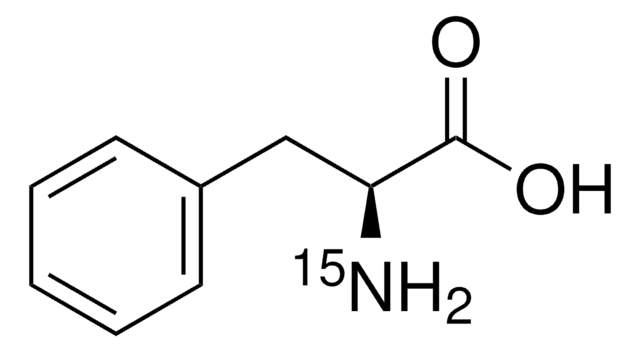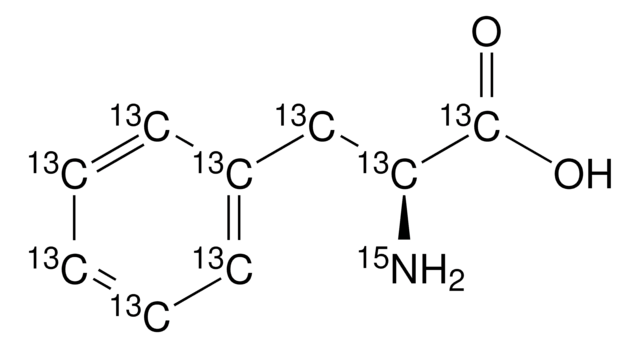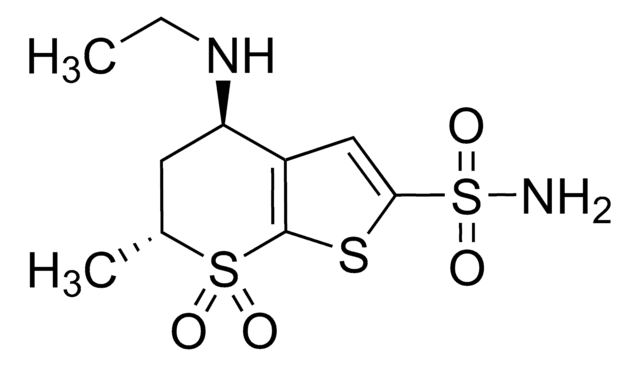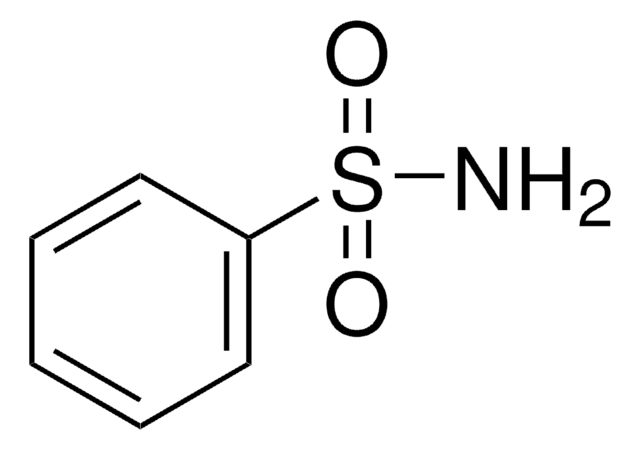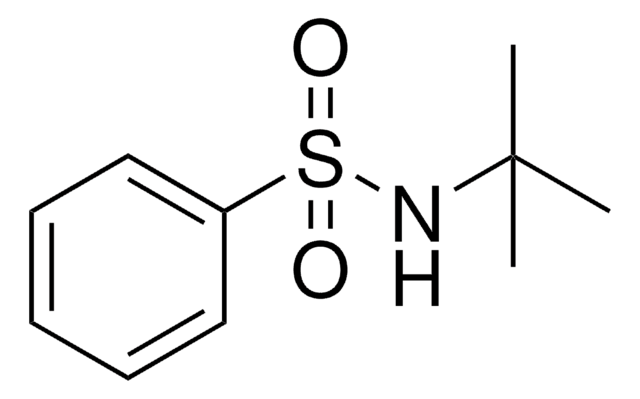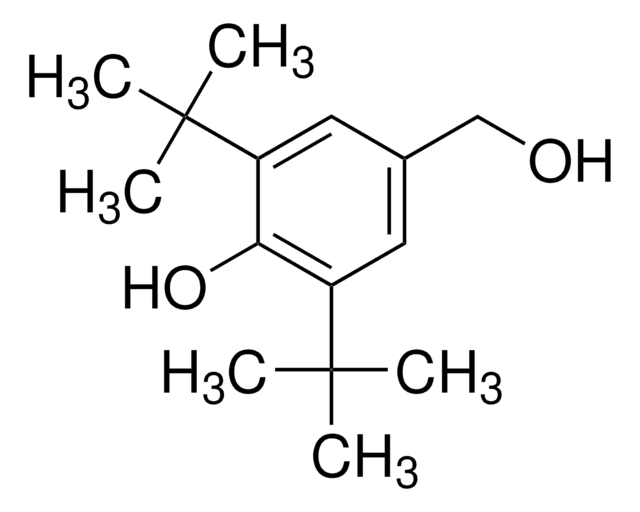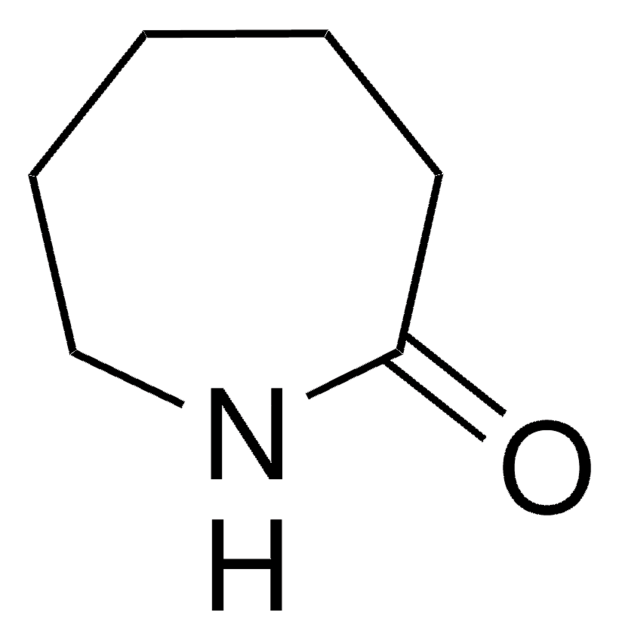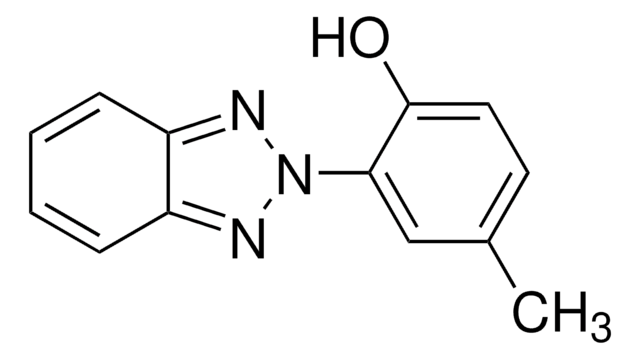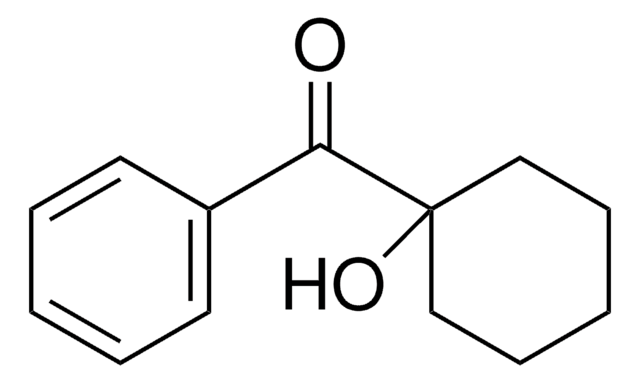추천 제품
vapor pressure
0.35 mmHg ( 150 °C)
분석
99%
형태
liquid
refractive index
n20/D 1.525 (lit.)
bp
314 °C (lit.)
density
1.15 g/mL at 25 °C (lit.)
SMILES string
CCCCNS(=O)(=O)c1ccccc1
InChI
1S/C10H15NO2S/c1-2-3-9-11-14(12,13)10-7-5-4-6-8-10/h4-8,11H,2-3,9H2,1H3
InChI key
IPRJXAGUEGOFGG-UHFFFAOYSA-N
신호어
Warning
유해 및 위험 성명서
예방조치 성명서
Hazard Classifications
Aquatic Chronic 3 - STOT RE 2
Storage Class Code
10 - Combustible liquids
WGK
WGK 1
Flash Point (°F)
235.4 °F - closed cup
Flash Point (°C)
113 °C - closed cup
개인 보호 장비
Eyeshields, Gloves, type ABEK (EN14387) respirator filter
M J Strong et al.
Neurotoxicology, 12(3), 415-425 (1991-01-01)
Repeated monthly intracisternal inoculations of N-butyl benzenesulfonamide induced a chronic, slowly progressive myelopathy in young adult New Zealand white rabbits that was manifested by hyperreflexia, spasticity, hypertonia, gait impairment and altered tonic immobility responses. The neuropathological features consisted of scattered
C V Rider et al.
Neurotoxicology, 33(6), 1528-1535 (2012-07-25)
N-Butylbenzenesulfonamide (NBBS) is widely used as a plasticizer in polyacetals, polyamides, and polycarbonates and has been found in ground water and effluent from wastewater treatment sites. The compound is lipophilic and distributes rapidly to the brain but also clears rapidly
P Duffield et al.
Journal of analytical toxicology, 18(7), 361-368 (1994-11-01)
The plasticizer, n-butylbenzenesulfonamide (NBBS), is reported to be neurotoxic when inoculated intracisternally or intraperitoneally into rabbits. Because NBBS is commonly used in the production of polyamide (nylon) plastics and is soluble in water, the disposal of NBBS-containing plastics in landfill
Preliminary observations on the in vitro toxicity of N-butylbenzenesulfonamide: a newly discovered neurotoxin.
V R Nerurkar et al.
Annals of the New York Academy of Sciences, 679, 280-287 (1993-05-28)
Sonja Schleich et al.
Planta medica, 72(9), 807-813 (2006-06-20)
Extracts from Pygeum africanum, Serenoa repens and Cucurbita pepo are used in the treatment of benign prostatic hyperplasia (BPH) and prostate cancer (PCa). The activity of the androgen receptor (AR) is known to control growth of the prostate. Here, we
자사의 과학자팀은 생명 과학, 재료 과학, 화학 합성, 크로마토그래피, 분석 및 기타 많은 영역을 포함한 모든 과학 분야에 경험이 있습니다..
고객지원팀으로 연락바랍니다.